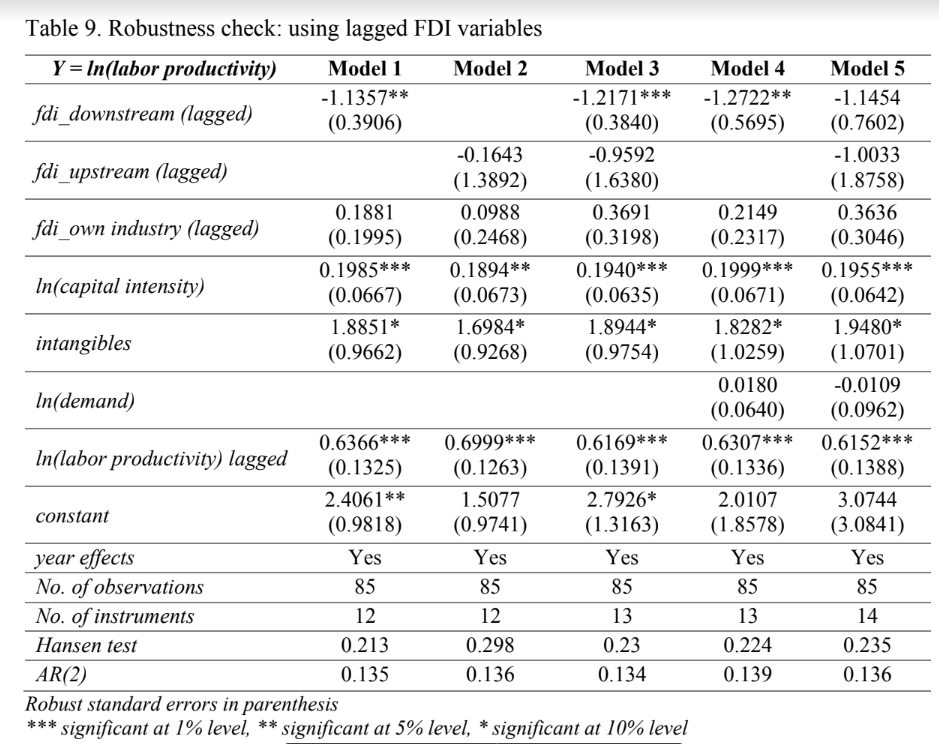Does the Presence of Downstream and Upstream Foreign Direct Investments Affect the Labor Productivity of Domestic Industries?
Conference
64th ISI World Statistics Congress - Ottawa, Canada
Format: CPS Paper
Keywords: manufacturing
Session: CPS 73 - Finance and business statistics V
Wednesday 19 July 8:30 a.m. - 9:40 a.m. (Canada/Eastern)
Abstract
With the premise that foreign direct investments (FDI) facilitate
technology and knowledge transfer to domestic industries, eventually contributing
to the country’s sustainable economic development, the Philippine Government
further liberalized its Foreign Investment Act in March 2022 to attract more foreign
investors. However, recent empirical evidence showing that FDI does facilitate
transfer of technology and knowledge and benefit domestic industries remains
limited in the Philippines. This study, based on a balanced panel of industry-level
data of manufacturing firms in the Philippines from 2010 to 2017, examines the
effect of downstream and upstream FDI presence on the labor productivity of the
manufacturing industries in the country. Empirical results suggest that FDI
presence in the downstream industries negatively affects the labor productivity of
domestic suppliers, while FDI presence in the upstream industries does not
significantly affect the labor productivity of domestic final-goods producers.
To reap the positive productivity benefits from FDI, the findings of this study
recommend the development of policies and programs to raise the absorptive
capacities of domestic industries, upgrade the local quality standards of the
domestic suppliers, and strengthen the collaboration between foreign suppliers in
the local market and domestic final-goods producers.
Figures/Tables
labor productivity

foreign firms
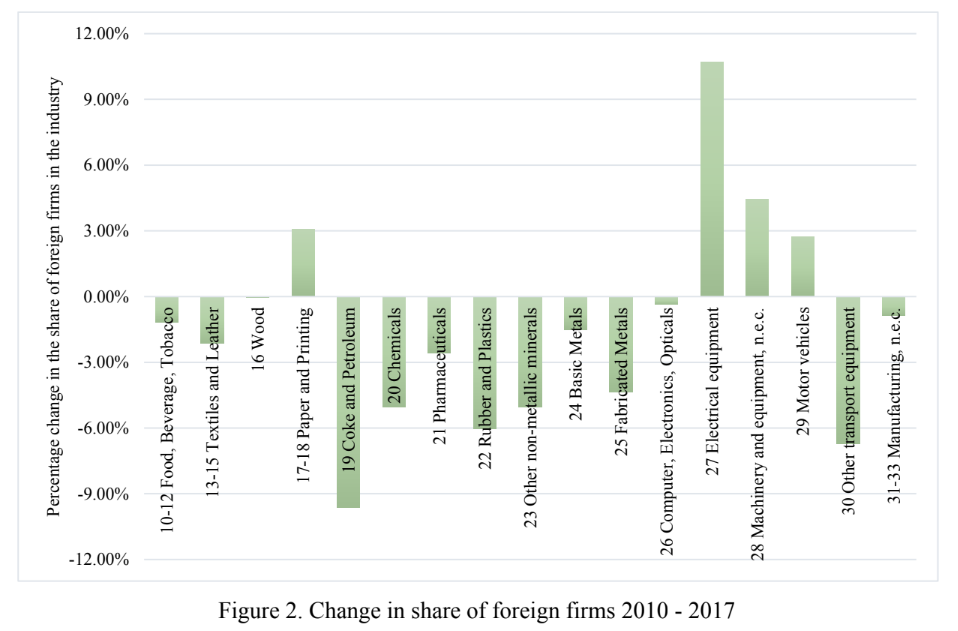
downstream FDI
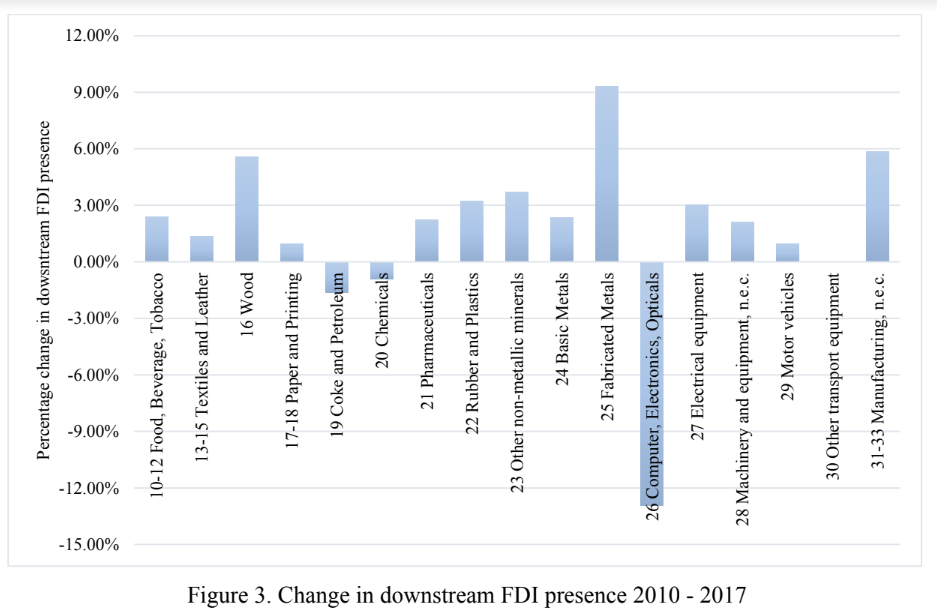
upstream FDI
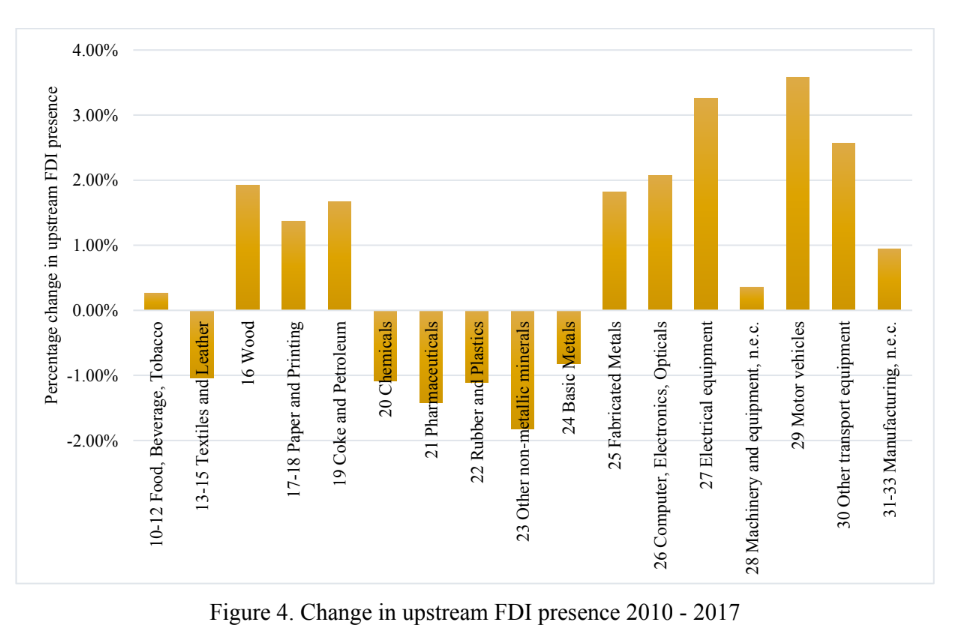
results
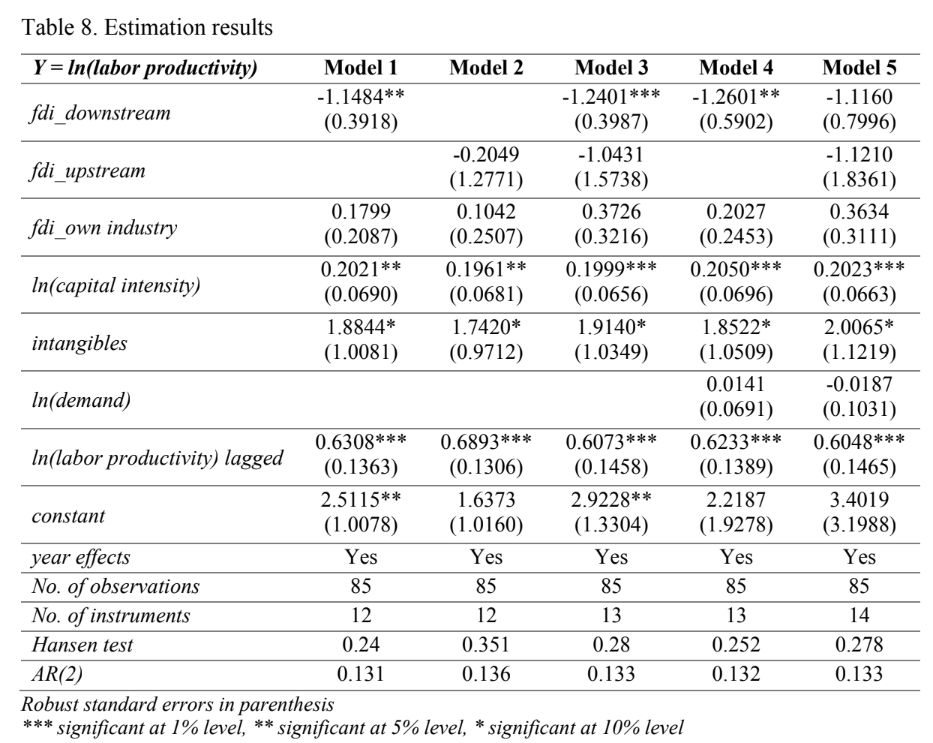
robustness check
